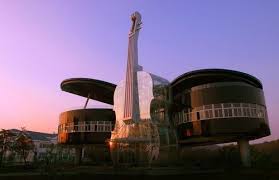Malcolm X
Dedicated to all politicians
I have been inspired over the years by great men who demanded for themselves the best and history of the blacks wouldn't ever be complete without citing them. Malcolm X is one of them, at every point in time he proved beyond reasonable doubt his abilities and potentials. Do you know Malcolm X ?
A brief about him
Malcolm X, born on May 19,1925 in Omaha, Nebraska. Christened Malcolm Little
and later also known as el-Hajj
Malik el-Shabazz, was an
African-American Muslim
minister and human rights activist. His
mother, Louise Norton Little, was a
homemaker occupied with the family’s
eight children. His father, Earl Little, was
an outspoken Baptist minister and avid
supporter of Black Nationalist leader Marcus Garvey.
Malcolm X was assassinated on February 21, 1965, At a speaking engagement in the
Manhattan’s Audubon Ballroom three gunmen rushed
Malcolm onstage. They shot him 15 times
at close range. The 39-year-old was
pronounced dead on arrival at New
York’s Columbia Presbyterian Hospital.
On the 23 January, 1965 barely one month before he was assassinated, Malcolm read a mind blowing speech at the Michigan State University, East Lansing.
Malcolm described the difference between
the "house Negro" and the "field Negro."
"So you have two types of Negro. The old type and
the new type. Most of you know the old type. When
you read about him in history during slavery he
was called "Uncle Tom." He was the house Negro.
And during slavery you had two Negroes. You had
the house Negro and the field Negro.
The house Negro usually lived close to his master.
He dressed like his master. He wore his master's
second-hand clothes. He ate food that his master
left on the table. And he lived in his master's
house--probably in the basement or the attic--but
he still lived in the master's house.
So whenever that house Negro identified himself,
he always identified himself in the same sense that
his master identified himself. When his master
said, "We have good food," the house Negro would
say, "Yes, we have plenty of good food." "We" have
plenty of good food. When the master said that "we
have a fine home here," the house Negro said,
"Yes, we have a fine home here." When the master
would be sick, the house Negro identified himself
so much with his master he'd say, "What's the
matter boss, we sick?" His master's pain was his
pain. And it hurt him more for his master to be
sick than for him to be sick himself. When the
house started burning down, that type of Negro
would fight harder to put the master's house out
than the master himself would.
But then you had another Negro out in the field.
The house Negro was in the minority. The
masses--the field Negroes were the masses. They
were in the majority. When the master got sick,
they prayed that he'd die. [Laughter] If his house
caught on fire, they'd pray for a wind to come
along and fan the breeze.
If someone came to the house Negro and said,
"Let's go, let's separate," naturally that Uncle Tom
would say, "Go where? What could I do without
boss? Where would I live? How would I dress?
Who would look out for me?" That's the house
Negro. But if you went to the field Negro and said,
"Let's go, let's separate," he wouldn't even ask
you where or how. He'd say, "Yes, let's go." And
that one ended right there.
So now you have a twentieth-century-type of
house Negro. A twentieth-century Uncle Tom. He's
just as much an Uncle Tom today as Uncle Tom
was 100 and 200 years ago. Only he's a modern
Uncle Tom. That Uncle Tom wore a handkerchief
around his head. This Uncle Tom wears a top hat.
He's sharp. He dresses just like you do. He speaks
the same phraseology, the same language. He tries
to speak it better than you do. He speaks with the
same accents, same diction. And when you say,
"your army," he says, "our army." He hasn't got
anybody to defend him, but anytime you say "we"
he says "we." "Our president," "our government,"
"our Senate," "our congressmen," "our this and
our that." And he hasn't even got a seat in that
"our" even at the end of the line. So this is the
twentieth-century Negro. Whenever you say "you,"
the personal pronoun in the singular or in the
plural, he uses it right along with you. When you
say you're in trouble, he says, "Yes, we're in
trouble."
But there's another kind of Black man on the
scene. If you say you're in trouble, he says, "Yes,
you're in trouble." [Laughter] He doesn't identify
himself with your plight whatsoever"
Fair enough Malcolm's time was in the 20 century and here we are in the 21st century still acting as such, behaving like the field negroes Aren't we one blood for God sake?
The whites are fighting us and now ourselves. Issues of national interest are now attend to with political spectacles. Is about that time we change. I thought we are blocs.
Our speeches need to be edited the 'I' must be 'we' 'mine' should be 'ours', we one country, different culture, same people one blood. Ghana at heart must be our priority not political views. The mere fact that Party A, is in power doesn't mean Party A should enjoy and party B suffering from hardship
Long live mother Ghana
Love live true patriot













